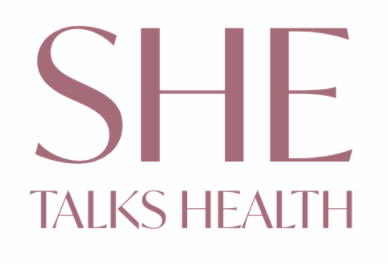
This is part II of a two-post series about anxiety. Be sure to read part one, if you haven’t yet.
In today’s blog, we are going to discuss the remaining factors that can often contribute to anxiety. As you may know, my goal is to encourage, inspire and educate you in ways so that you can reclaim your full health and well-being!
1. Poor Blood Sugar Control
Oftentimes we may think of blood sugar as it relates to diabetes, yet even with a relatively normal blood sugar range, our blood sugar can definitely impact other aspects of our mood and emotional state.
It is very interesting to note that symptoms of hypoglycemia (low blood sugar) are very similar to those of a panic attack and include: rapid heart beat, blurry vision, sudden mood changes, sudden nervousness, unexplained fatigue, headache, hunger, difficulty sleeping, and trouble thinking clearly. Any of that sound familiar or do you experience a string of those symptoms all at once?
Hypoglycemia has been popularized, by using the term ‘hangry’, essentially meaning hungry + angry. Being “Hangry” is perhaps the easiest way to self identify how rapid shifts in our blood sugar really do impact our mood, and therefore how we feel throughout the day!
Blood sugar dysregulation can be such a big stressor for your body. Let me share why. Consider this…say you eat foods with lots of simple carbohydrates that break down quickly in your body causing a blood sugar spike. That then triggers your body to secrete high doses of insulin to try and lower your blood sugar but if your body secretes too much insulin, it can cause your blood sugar to dip too low (hypoglycemia) and this can cause anxiety amongst many other unfavorable symptoms like fatigue and shakiness. Not fun!
All that being said, there are things you can do to help balance your blood sugar and therefore, decrease anxiety.
Here’s what you can do about Balancing Blood Sugar:
- Eat breakfast within an hour of waking
- Always pair carbs with protein and fat
- Limit your caffeine intake
2. HPA Axis Dysregulation
I vividly remember waking up one morning feeling completely exhausted, wondering why I hadn’t yet installed a coffee machine in my bedroom! I was living on a coffee diet and would skip breakfast because getting to work was more important than eating to me at the time. Lunch would roll around and I’d eat at my desk, yet only an hour later to crash at my computer!
Once again, sound familiar to any of you?
In my experience and those of my clients, it’s just a matter of time until you burn out which exacerbates anxiety issues. Nothing was more valuable to me in my health journey than getting this under control so I could finally sleep soundly and wake with my own natural energy.
So, let’s talk about the HPA Axis or Hypo-thalamic-pituitary-adrenal axis. This controls our fight or flight response and rest and digest response via the autonomic nervous system.
This intricate, complex system was designed brilliantly to help us run away from danger by sending blood to our limbs, oxygen into our lungs while shutting down function to organ systems that aren’t crucial for survival like reproductive & digestive organs.
The only problem?
We are stressed all the dang time – our emails, phones, tablets, tv’s, news, family – you name it – we have stress all day everyday & our HPA Axis is taking the hit.
However, it’s not just mental & emotional stress that causes the HPA axis to dysfunction – chronic inflammation, food sensitivities, autoimmune disease, hormone imbalances, over-exercise, nutritional deficiencies, etc. all create stress in the body, which can cause this delicate axis to swing out of balance.
Here’s what you can do for HPA Axis Dysfunction:
- Work with an expert like myself to investigate any H.I.D.D.E.N.* root causes of stress and remove or reduce them.
- Incorporate Daily Stress Management Tools, whether it be deep breathing, meditation, daily walks, yoga, laughter, journaling. It’s CRUCIAL to take the time to turn off the stress.
- Try calming herbs like chamomile, passion flower or skullcap.
*H.I.D.D.E.N – Hormone, Immune, Digestive, Detoxification, Energy, Nervous System
3. Low progesterone/high estrogen
Once I really committed to uncovering the root cause of my anxiety, I started tracking my cycles and what I found was it was coming monthly. As I dug into the research & did some testing I found out why… low progesterone.
During the 2nd half of our cycle, progesterone is created from the corpeus luteum. Progesterone activates gamma-aminobutyric acid (GABA), which calms epinephrine & norepinephrine so you can feel calm, centered & have peaceful sleep. Low progesterone typically occurs when we either haven’t produced enough progesterone or we haven’t produced enough progesterone in relation to estrogen.
A first step would be to find out if you’ve ovulated, because no ovulation means no progesterone.
If you notice your anxiety & sleeplessness arise every month in the 2nd half of your cycle or you are on hormonal birth control & experiencing anxiety, there are some things you can try.
Important note: many women on Hormonal Birth Control don’t create progesterone as the combination pill suppresses your hormones causing you to not ovulate.
How to figure out if you ovulated:
- To determine ovulation, you can start taking your basal body temperature & charting your cycle. You will know if you ovulated by a slight rise in temp at mid cycle, which continues with you until you have your period again. You can also check for it by using an at home ovulation predictor.
- You can support progesterone naturally by lowering stress & inflammatory foods like dairy, gluten, alcohol, sugar, processed foods. There are progesterone supportive supplements like Magnesium, Vitamin B6, Vitex, Selenium but please work with a professional to understand if these are the right supplements for your unique body.
- Finally, get your hormone levels tested. Please contact me for more info about testing. It’s important to know if you also have estrogen dominance, low progesterone, or trouble ovulating so that you can customize your approach to healing anxiety and your hormones.
This post is part two of a 2-post series. Check out part 1 HERE.
